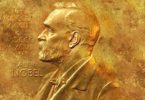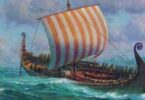Travel quiz questions on introduction and fundamentals of different types of tourism, affects, benefits and facts about tourism
A resort area – centered around a mineral spring, hot spring and the like, where one can find options for hydrotherapy is called_____
(a) Spring Resort
(b) Spa
(c) Jacuzzi
(d) None of these
_____ refers to all those individuals, who have potential to undergo any tour but they have delayed their plan due to some reasons.
(a) Potential demand
(b) Deferred demand
(c) Creative demand
(d) Future demand
___ Tourism is usually at the places which are towards extinction or are potentially endangered.
(a) Doom
(b) Poverty
(c) Dark
(d) Disaster
Related: Air pollution multiple choice questions and answers
A person who is travelling a place for pleasure is known as
(a) Tourist
(b) Traveller
(c) Inbound tourist
Which of the following is not a component of tourism product?
(a) Attractive
(b) Accessibility
(c) Amenities
(d) Attitude
____ refers to all those people, who can undergo tours but are not utilizing any tourism product because of lack of motivation and sufficient information.
(a) Active demand
(b) Future demand
(c) Potential demand
(d) Suppressed demand
A person who moves from one location to another is known as ___
(a) Tourist
(b) Traveler
(c) Inbound tourist
(d) Out bound tourist
Related: medieval quiz
A country is mainly benefited from tourism by the ___
(a) Tourist expenditure
(b) Tourist travel
(c) Accommodation
Which of the following are the characteristics of tourism industry?
I. Stable location.
II. Intangibility.
III. Huge financial investments.
IV. Stable demand.
(a) Both (I) and (III) above
(b) Both (II) and (IV) above
(c) (I), (II) and (III) above
(d) (I), (III) and (IV) above
____ is a key tourism asset
(a) Culture
(b) Packages
(c) Trekking
(d) Hotels
Who are the targets of a tourist spot that is located at great heights
(a) Children
(b) Women
(c) Adventure tourists
(d) Business tycoons
Name the first space tourist:
(a) Thomas cook
(b) Dennis Tito
(c) Dennis Martin
Related: Switzerland Trivia Questions, Answers
Excursionist means
(a) A person who stays less than 24 hours in the country visited
(b) A person who stays more than 24 hours in the country visited
(c) A person who covers a reasonably large distance within the country of his residence.
(d) A person who stays at least one year visited.
___ defined as all those means that can be beneficially utilized for the purpose of tourism in a given area.
(a) People
(b) Resources
(c) Transport
(d) Homes
Tourism is economically significant because it generates ____ and ____.
(a) Happiness and Satisfaction
(b) Income and Employment
(c) Health and Safety
Tourism is a business activity which requires:
(a) Long-term planning
(b) Medium-term planning
(c) Short-term planning
(d) All of the above
Related: multiple choice questions Painting
The word ‘tour’ is derived from the Latin word tornus, which means ____.
(a) a tool for making a circle
(b) a homely feel
(d) a constituent of travel
(c) relaxation
Eco-Tourist is interested to visit a destination where there is
(a) Rich wildlife wealth
(b) Unique wildlife species
(c) Relatively unspoilt natural environment
(d) Dense forest
Which one of the following is a travel motivator?
(a) Booking a flight ticket
(b) Civil Unrest
(c) Imposition of heavy excise duty
___ represent a fundamental resource for maritime tourism.
(a) Islands
(b) Boats
(c) Scuba diving
(c) Fishes
Related: Africa quiz
Which one of the following is a pact of adventure tourism?
(a) Swimming
(b) Bowling
(c) Bungee Jumping
(d) Chess
_____ focuses on exploration the study of culture and traditions of indigenous populations.
(a) Eco-Tourism
(b) Ethno-Tourism
Related: Asia countries quiz
This is an example of a social benefit of tourism
(a) Local people looking after the environment
(b) Local people being employed in tourism businesses
(c) Local people become entrepreneurs
(d) Local people preserve and protect their culture
Destinations that have long insolation periods and few cloudy days are suitable for _____ tourism.
(a) Summer
(b) Winter
(c) Autumn
(d) Spring
If you are moving in a sanctuary and learning more about migratory birds, you are , in all probability, a/an
(a) Researcher
(b) Explore
(c) Eco‐Tourist
Related: questions about the Renaissance
When a visitor travels in his country of residence, he is a ____ visitor
(a) Domestic
(b) International
(c) Inbound
(d) Out bound
Which of the following is not an element of tourism?
(a) Bread and biscuits
(b) Scenic attractions
(c) Historical factors
(d) Amenities
The word Tourist was derived from the Latin word :
(a) Tornus
(b) Trident
(c) Toijour
Platforms of sandy and coral beaches close to the sea, sheltered from high waves and tidal currents, help to develop ______.
(a) responsible tourism
(b) beach tourism
(c) sea tourism
(d) eco tourism
Related: Automobile quiz
Which is the most expensive type of tourism?
(a) Green Tourism
(b) Cruise Tourism
(c) Space Tourism
(d) Religious Tourism
A person who travels on foot is known as
(a) Pouching
(b) Way Tarer
(c) Cosmopolitan
A tourist generating country is a ______ for tourism.
(a) destination
(b) market
(c) spot
(d) region
International tourist is a ______ migrant to another country.
(a) temporary
(b) permanent
(c) domestic
(c) regional
Related: quiz about Rome
Tourism creates impact on ____.
(a) Individual
(b) Family
(c) Culture
(d) Community
An example for negative impact of tourism is:
(a) Employment generation
(b) Displacement effect
(c) Higher GDP growth
(d) Poverty alleviation
_____ is a broad term that covers all tourism experiences centered on wild or natural environments.
(a) Nature-based tourism
(b) Adventure tourism
(c) Eco tourism
(d) Responsible tourism
Related: Food trivia questions multiple choice
_____ perceive that travel does not add any value to their lives. They are always engage in travel thinking and see no worth in paying extra for special amenities.
(a) Economizer
(b) Worriers
(c) Tourists
(d) Indulgers
_____ do something beyond norms. They always want to be away from tourist crowds.
(a) Elite tourists
(b) Off beat tourists
(c) Unusual tourists
(d) Explorer
Organized mass tourists are highly dependent on ______.
(a) Trekking
(b) Togetherness
(c) Environmental bubble
(d) Travel
Educated tourists who like to try new experiences are known as _______.
(a) Adventurer
(b) Worriers
(c) Dreamers
(d) Indulgers
Related: New Zealand trivia questions
The ____________ of a destination is the main factor in getting the tourist to visit and spend time at a given destination.
(a) Attractiveness
(b) Food
(c) Trekking
(d) Culture
A ______is the sum of the physical and psychological experience got by tourists during their traveling to the destination.
(a) Tourism audit
(b) Tourism product
(c) Tourism culture
Related: All Singapore Trivia Quiz
Tourism is an _____ product.
(a) Ideological
(b) Intangible
(c) Illustrative
(d) Indifferent






